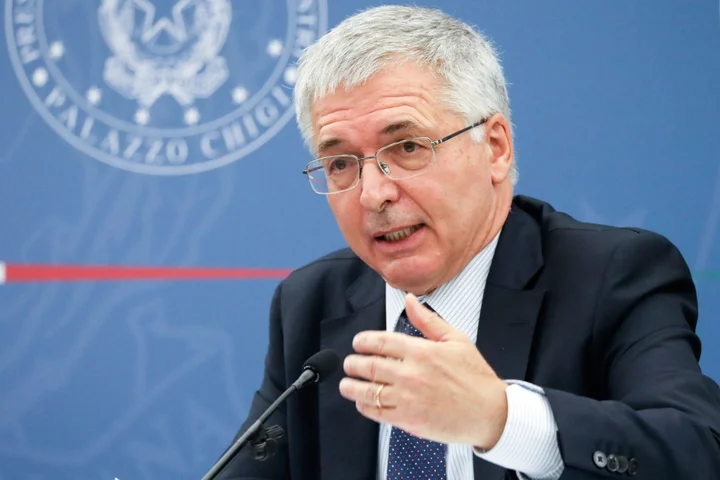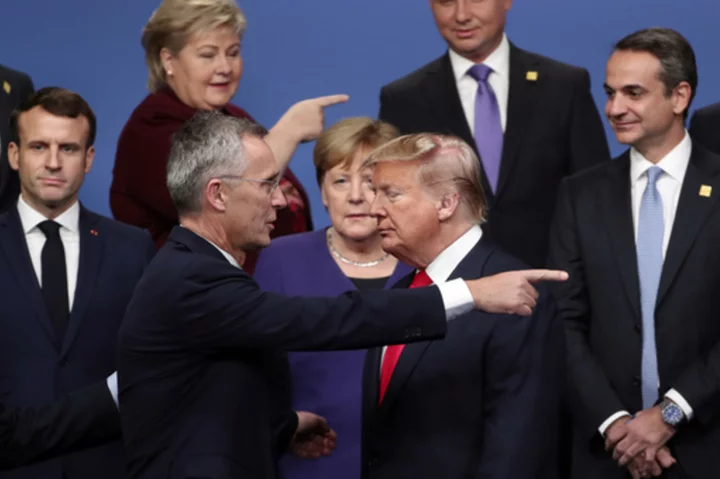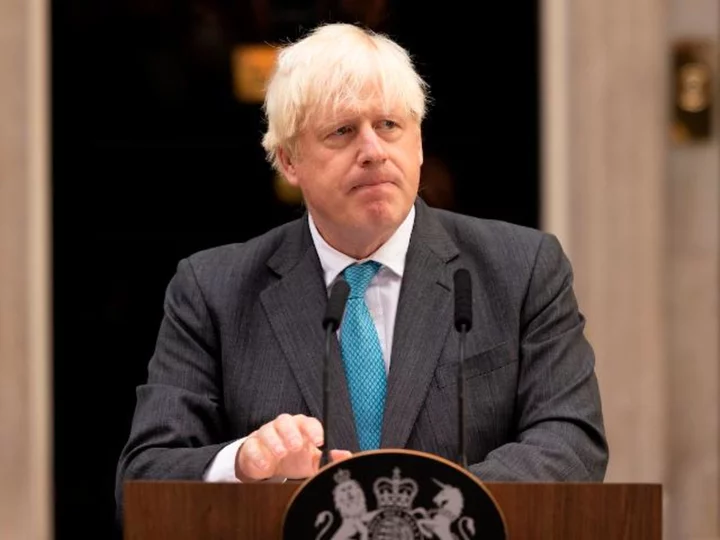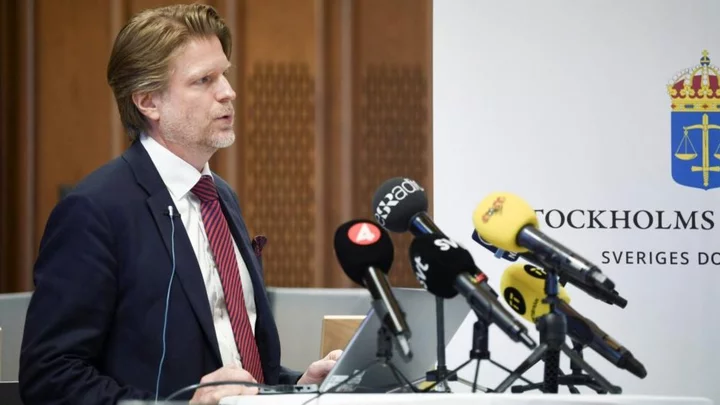The European Union’s next contest for a top job risks turning into a showdown between its two key Mediterranean powers staking rival claims to status and influence within the bloc.
With German official Claudia Buch now nominated by policymakers to lead the euro zone’s banking supervisor, the focus among officials is shifting to the five-way race to lead the Luxembourg-based European Investment Bank as both Spain and Italy vie to secure that role.
There’s stiff competition from Margrethe Vestager of Denmark, with Teresa Czerwinska of Poland and Thomas Ostros of Sweden in the running too. But those contenders will need to defeat rival candidates from the euro region’s third- and fourth-biggest economies — former Italian Finance Minister Daniele Franco, and Spanish Deputy Prime Minister Nadia Calvino.
The matter will come up at a meeting of counterparts that the latter will host this weekend in the pilgrimage city of Santiago de Compostela on Spain’s western coast. But while the Spanish government initially expected a clear majority of ministers to back Calvino at the event, a decision is no longer expected imminently, in a sign that consensus is lacking between EU members.
The rotating Belgian presidency of the EIB board of governors is expected to make a short update on the process, an EU diplomat said. Calvino herself promised not to discuss the issue with fellow ministers on the sidelines of the Santiago meeting and told reporters she’s taking nothing for granted.
The possibility of a personnel duel over the leadership of the world’s biggest multilateral lender showcases the intense rivalry that can simmer in relations at EU level between the two biggest countries at the bloc’s southern flank.
“In great European style the choice is part of the bigger horse trading that takes place,” said Maria Demertzis, a senior fellow at Bruegel. “The EIB will have a pivotal role to play as there will be a huge demand for investments. The next EIB president needs to be very visible, active and effective.”
Calvino’s prospects were boosted on Wednesday by the defeat of her fellow citizen, Bank of Spain Deputy Governor Margarita Delgado, in the European Central Bank’s Governing Council vote to back Buch for its supervision arm. That removed two concurrent claims from the same country for different jobs, which was bound to encounter opposition from partners.
Even so, the apparent slowdown in the timetable for a job that will come due at exactly the same time as the banking role — with the retirement in January of Germany’s Werner Hoyer — shows that there’s no indication so far that the post is Calvino’s to lose, at a time when Spain has yet to form a government.
The country’s partners can point to the key roles that its citizens have already clinched. They include EU foreign policy chief Josep Borrell, ECB Vice President Luis de Guindos, and European Banking Authority Chair Jose Manuel Campa.
Italian officials can claim that, aside from EU Economic and Monetary Affairs Commissioner Paolo Gentiloni, they’re not well represented in key institutions, especially now that Andrea Enria is poised to leave as bank supervision chief later this year. They also insist that Franco, a former Bank of Italy director general, is a strong candidate for the EIB.
Vestager, who is part of the Danish delegation traveling to Santiago this weekend, is signaling confidence in her own chances, having stepped aside from her heavyweight role as the EU’s competition commissioner to pursue her own bid for the job.
It’s feasible she could win as — like Calvino — she would right wrongs as the EIB’s first female chief. Still, she came under fire, mostly from France, for hiring a prominent US academic for the EU chief competition advisory role amid rising tensions with Washington over green subsidies.
“No offense to Vestager, but it’s a job for a banker,” said Carlo Alberto Carnevale Maffe, professor of business strategy at Milan’s Bocconi University.
Czerwinska, a former Polish finance minister now at the EIB, would also advance the diversity cause, with the added opportunity to help fix the disproportionately low representation of Eastern Europeans at top level in the EU.
The Swedish candidate, Ostros, is an EIB official as well.
It could take weeks for the impasse to resolve itself, not least as governments who will choose a new EIB chief in their capacity as its shareholders remain unresolved themselves.
Germany’s coalition has yet to form a collective view. Social Democrat Chancellor Olaf Scholz could be expected to favor Calvino, who hails from the same political family as he does.
Meanwhile Finance Minister Christian Lindner, in remarks to Politico published on Tuesday, declined to signaled a preference, saying he wants continuity from Hoyer — who hails from the Free Democrats, just as he does — with a need for “sound banking” at the EIB.
A defeat for Calvino, a former EU Commission official who has served as Spain’s economy minister since 2018, could be a bitter pill to swallow as yet another setback at regional level. She already lost out to Kristalina Georgieva as Europe’s choice to run the International Monetary Fund in 2019 and a year later to Ireland’s Paschal Donohoe when euro-area finance ministers selected him to chair their group.
While EU horse-trading for top jobs is par of the course, Carnevale Maffe of Bocconi wishes that the region would take a meritocratic approach to such important personnel decisions.
“It shouldn’t be looked at like a scalp you need to get — making this all about national interest and champions is a distortion, and an immoral one at that,” he said. “It needs to be about who is best for the job.”
--With assistance from Kamil Kowalcze and Samuel Stolton.
(Updates with Calvino comment in fifth paragraph)
Author: Alessandra Migliaccio, Jorge Valero and Alonso Soto









